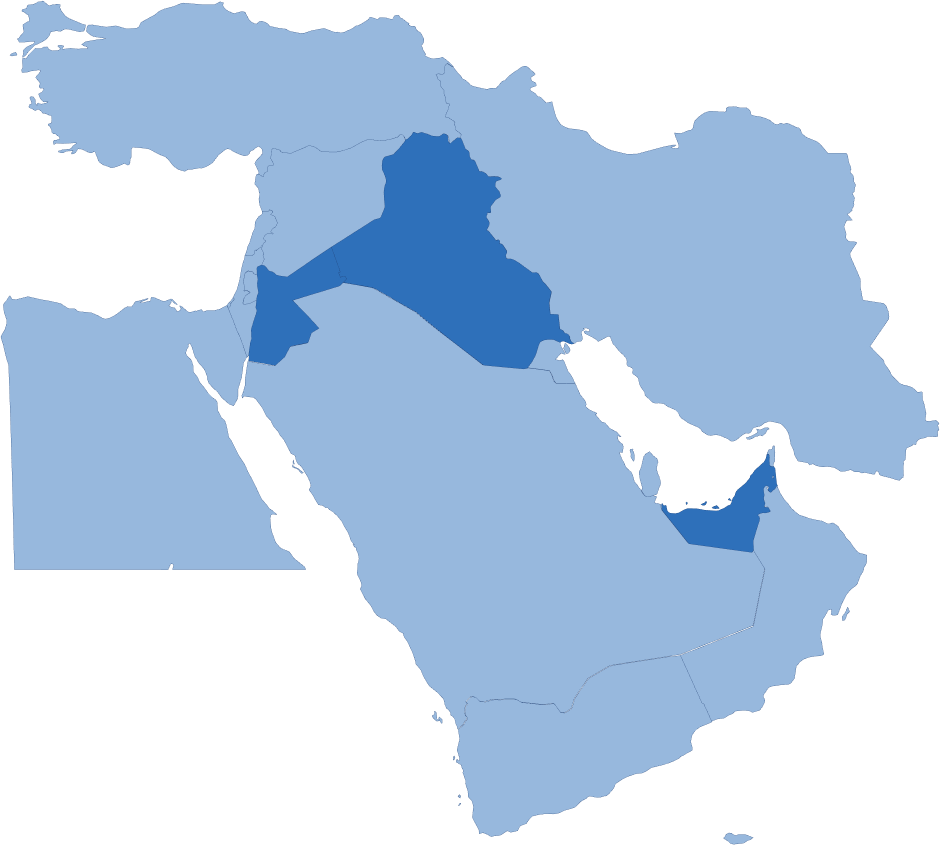Improving health equity, quality and governance in the Middle East
Regional Challenges
Our story: A Holistic Approach to Transform Care
Middle Eastern healthcare systems are under pressure from multiple angles – from the challenging effects of COVID-19 and the growth of lifestyle and chronic conditions, to ageing populations and persisting inequities in access to care.
Movement Health aims to address these regional healthcare challenges by advancing health leadership, driving health innovation from a finance, governance and tech perspective, and positioning the region as a health tourism hub, and will use multiple approaches to achieve this goal.
This will mean enhancing already advanced healthcare systems in some countries, while helping others “leapfrog” forward via innovative technologies and governance and economic models.
In addition, Movement Health will work with elected leaders and policymakers to support cross- border collaboration, as well as healthcare system partnerships to make the necessary and meaningful impact with the aim to save lives.

Middle East
Although there are considerable differences in digitalisation levels, general healthcare system advancement, economic prospects, and cultures across the Middle East, many countries still share very similar healthcare challenges that could be addressed via cross-border collaboration, notably:
United Arab Emirates
Healthcare in the UAE is known to be among some of the best in the world. There are 181 doctors per 100,000 residents.
Iraq
The Iraqi government has several national health plans and is committed to universal healthcare.
Jordan
Jordan is one of the most advanced healthcare systems in the Middle East, with high healthcare spending, a strong national health strategy and a well-trained health workforce.
Lifestyle and chronic diseases are now responsible for 78% of deaths in the Middle East
Life expectancy at birth varies greatly across the region
There are big differences in the level of adoption of telehealth across the region

United Arab Emirates
Healthcare in the UAE is known to be among some of the best in the world. There are 181 doctors per 100,000 residents. The UAE Ministry of Health (MoHAP) has established the country’s Unified Medical Record System to help public and private facilities to collaborate on patient medical records and clinical details but there is still more that can be done from an overall collaborations perspective.
Life expectancy is 77.8 years
Prenatal and postnatal care is on par with the world's most developed countries
Iraq
The Iraqi government has several national health plans and is committed to universal healthcare. Nevertheless, Iraq is also witnessing financial and legal developments, which create some barriers to improved treatment quality and extended access to care for all. Currently, Iraq is also experiencing a shortage of trained medical staff and medicines.
At only 4.5% of GDP, Iraq’s health spending is lower than its neighbours
Chronic and lifestyle diseases are estimated to account for roughly 62% of all deaths in Iraq.
Jordan
Jordan is one of the most advanced healthcare systems in the Middle East, with high healthcare spending, a strong national health strategy and a well-trained health workforce. It could improve healthcare governance processes, the geographic distribution of healthcare workers, and enhance health data management and exchange. By doing so, Jordan could extend universal healthcare coverage and further position itself as a health tourism hub.
